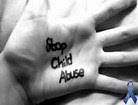Violence
In almost all families of every income, ethnicity, and nation, parents want to protect their children while fostering their growth. Yet far more children die from violence-either accidental or deliberate-than from any specific disease (Berger, 2016). I can honestly say, I have never as a child had to deal with any of these stressors. I see a lot of these stressors everyday, because I work with families that is associated with these kind of problems.
I had a family that was dealing with violence. Mom had three children that was 5, 12, and 14 years of age. The dad was hurting the oldest, because he was not his biological child. Mom knew this was happening, but she would find some way to make an excuse. The dad was beating the child with his fist, or anything he felt like picking up at the time. Mom was by making excuses, making promises or just acting like she really didn't know what was going on in her house. Mom would asked the child, "How did you do that.?" Mom knew dad was doing this to her child. Mom would also promise the child that she would buy them something or take them somewhere special if they wouldn't tell anyone what happen. I asked mom was this her way of surviving by lying and hiding the truth. Mom told me that I could not tell her how to run her house. I told mom that I may not can tell her how to run her house, but I am a mandated reporter.
One day I did a pop up visit at their house. When I open my car door, I could hear the screaming, crying, and pleading for someone to stop. As I was approaching the door, I dialed 911. When I open the door, the child was covered in blood, and barely moving. The police walked in an immediately grab dad. The child had been beaten with a child's plastic bat. I called CPS and they came and removed the other children. mom went to jail with dad. The child has some memory loss, and has lost mobility to his right arm. This was stress on the entire family, because it was stressful on mom and the child for lying. The child was dealing with the most stress, because he had to make sure he was doing all the right things to keep dad from hurting him, but what was the right thing? Child Abuse is violence.

Here are some other regions and countries where children are experiencing stressors like war, poverty, racism, natural disaster, isolation, hunger, noise, chaos, disease, environmental pollution, and violence.
Caribbean Region, Belize, Jamaica, Guyana, Barbados, Trinidad, Africa, and Kenya.
What happens to children's biosocial, cognitive, and psychosocial development when they experience these stressors?
These children can be emotionally torn down, and can become vulnerable. They can experience brain problems and physical problems. Other problems could be; humiliation, embarrassment, anxious, depression, anger problems, and worried about self or loved ones. All of these problems ties into the developing domains.
Reference
Berger, K. S. (2016). The developing person through childhood (7th ed.). New York, NY: Worth Publishers